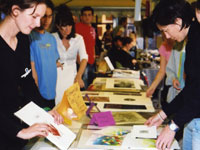Foundations of Politics and International Relations - ARTS1810
Faculty: Faculty of Arts and Social Sciences
School: School of Social Sciences
Course Outline: School of Social Sciences
Campus: Sydney
Career: Undergraduate
Units of Credit: 6
EFTSL: 0.12500 (more info)
Indicative Contact Hours per Week: 3
CSS Contribution Charge: 1 (more info)
Tuition Fee: See Tuition Fee Schedule
Further Information: See Class Timetable
Available for General Education: Yes (more info)
View course information for previous years.
Description
Subject Area: Politics and International Relations
Where does power lie in politics? Whose explanations about how the world works are valued and why? This course will equip you with some of the skills necessary to begin formulating your own answers to these questions. You will be introduced to the idea of studying politics, both domestic and international, as an academic discipline, and to some of the key academic conventions and standards that are important to the discipline: the idea of evidence-based argument, for example, and the idea of ethical scholarship. We will also discuss the formation of the modern state system and interrogate the conceptualisation of the state that informs much contemporary theory and practice in politics at the national and international level.A substantial part of this course is devoted to the introduction of the main theoretical traditions that animate the study of politics and international relations. One of the central messages of the course is that different theoretical approaches generate different images of the world that build on particular assumptions. Therefore, while people may think they know what the current problems of politics and global politics are and how to solve them, one of the aims of this course is to alert you to other ways of seeing things. This should allow you to make a more confident decision about your own stance towards particular issues and to analyse these issues more thoroughly, but it should also make you question both your own and others’ representations of the world.










